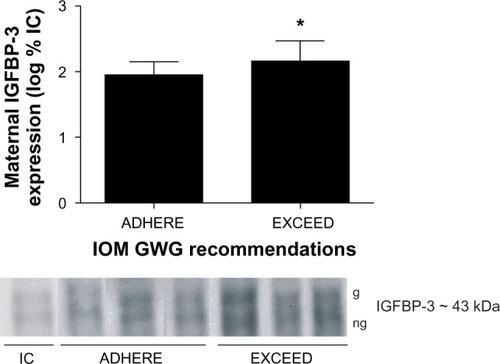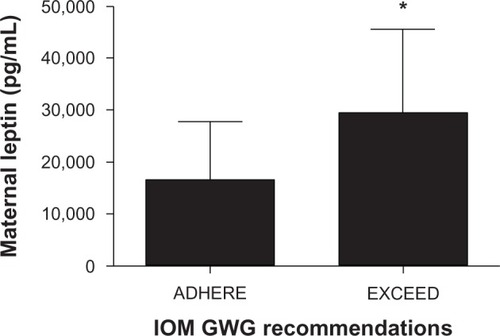Figures & data
Table 1 Patient characteristics
Figure 1 Excessive gestational weight gain augments maternal IGFBP-3 expression. Representative serum expression patterns of glycosylated (g) and nonglycosylated (ng) maternal IGFBP-3 isoforms of patients who adhere to (ADHERE) or exceed (EXCEED) the 2009 IOM GWG guidelines.
Abbreviations: IC, internal control; GWG, gestational weight gain; IGFBP-3, insulin-like growth factor binding protein-3; IOM, Institute of Medicine.

Figure 2 Maternal leptin level increase in women who exceed 2009 GWG recommendations.
Abbreviations: GWG, gestational weight gain; IOM, Institute of Medicine.

Figure 3 Maternal leptin levels positively correlate with (A) excessive GWG and (B) HOMA-IR.

Table 2 Maternal and fetal outcome variables for mothers who adhere to (ADHERE) and exceed (EXCEED) GWG recommendations
Table 3 Spearman correlations between maternal and fetal outcomes